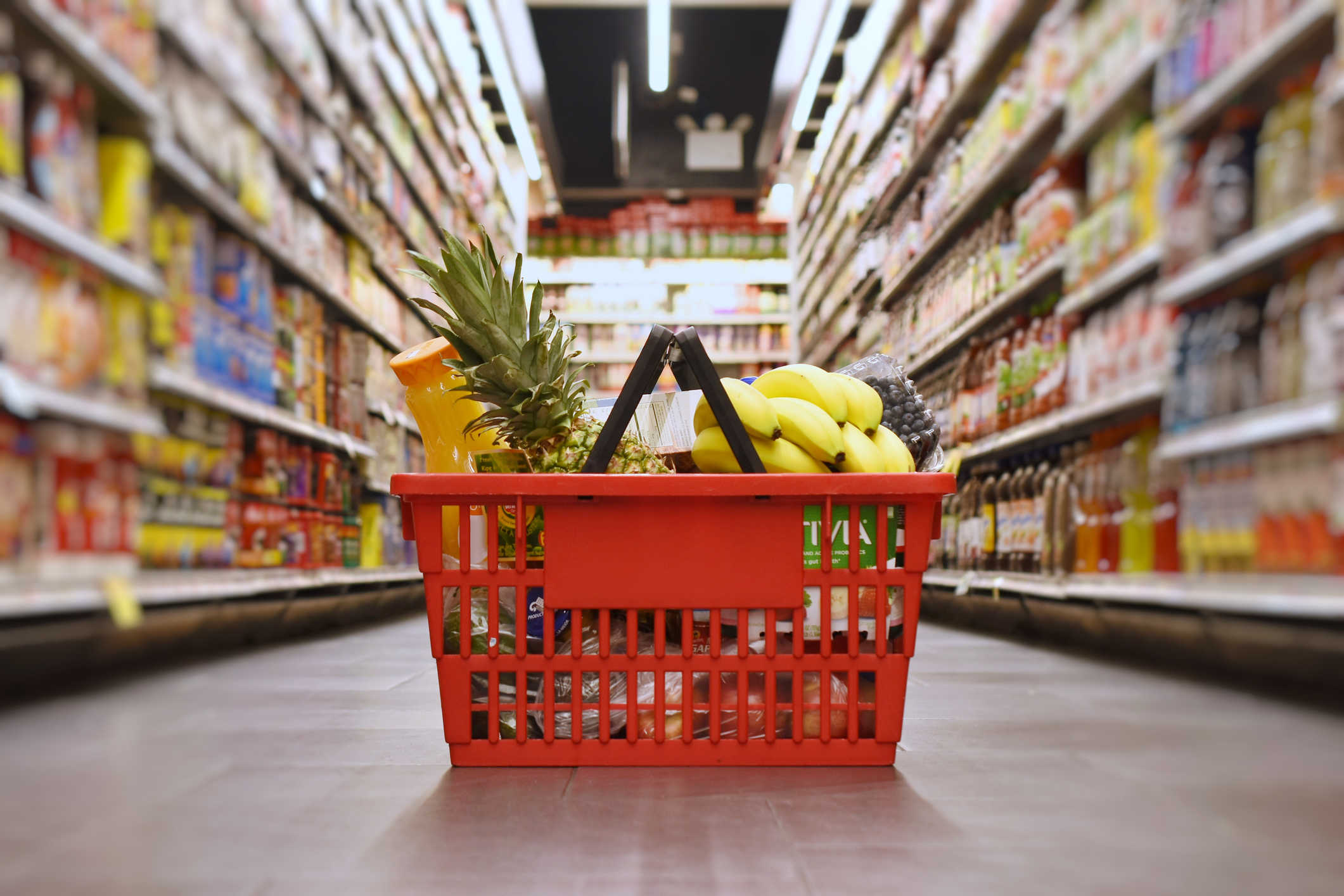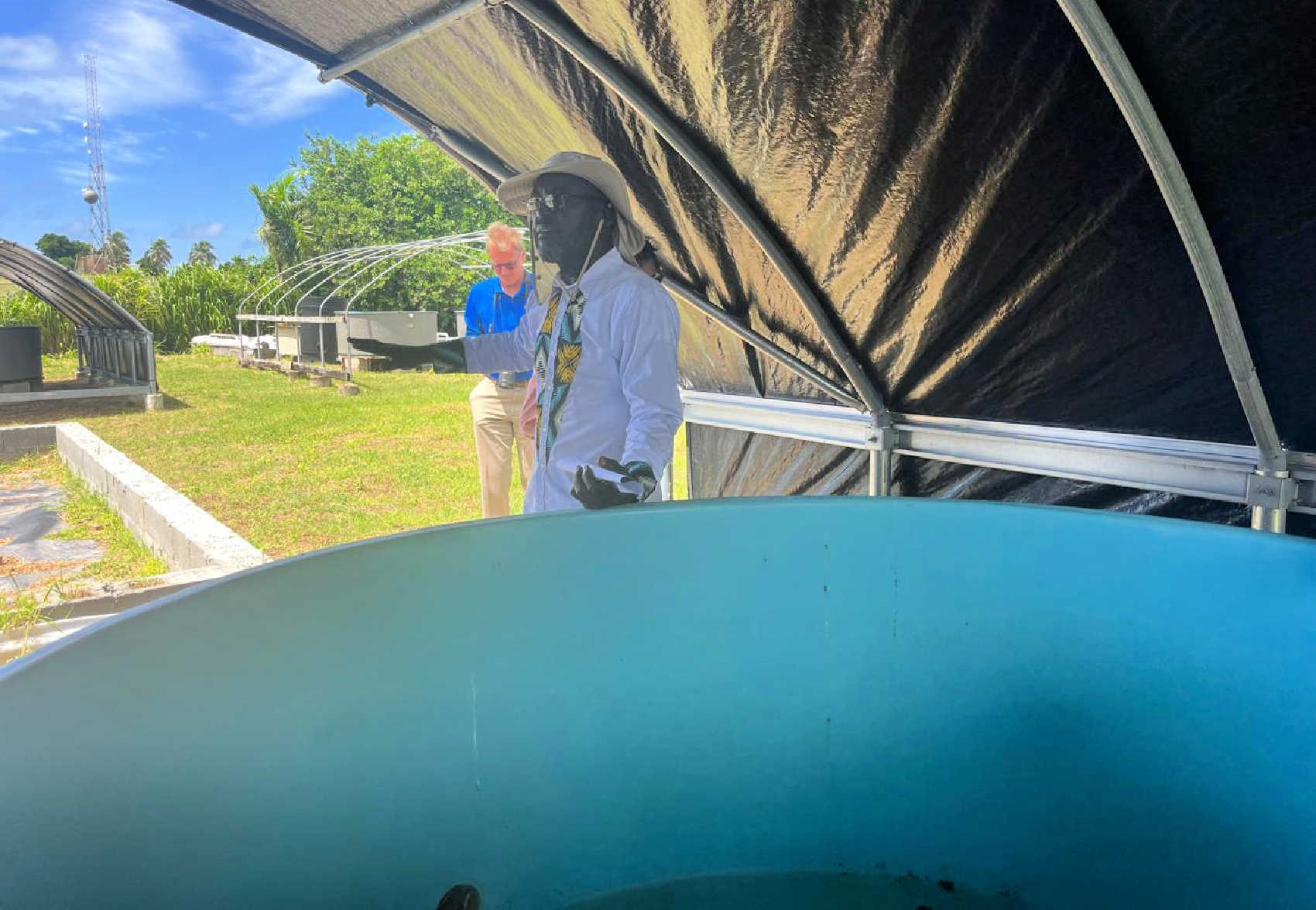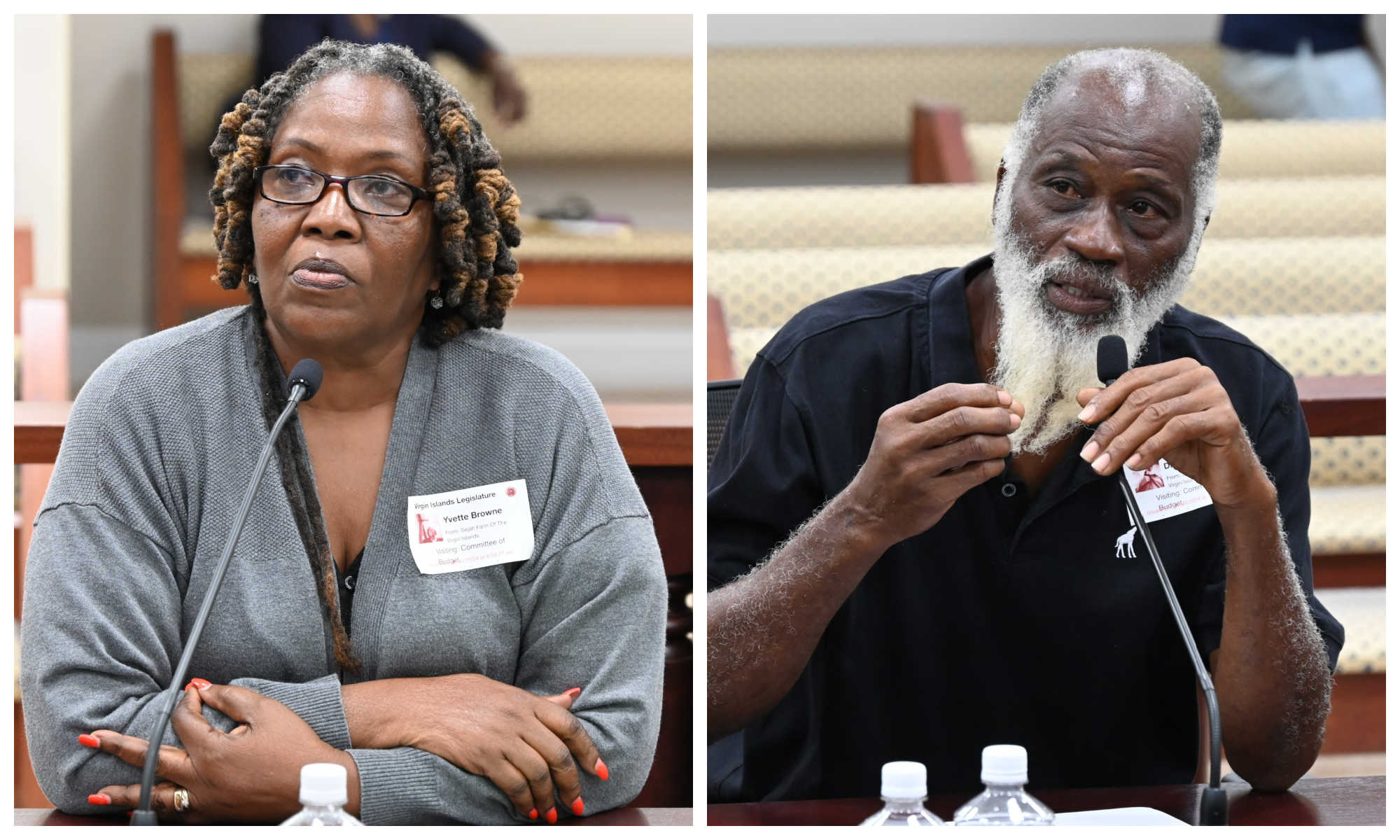Agriculture
Governor Bryan Advocates for Health-Focused Food Stamp Program and Strong Support for USVI Agriculture in New Farm Bill

During a pivotal session at the National Governors Association’s 2024 Winter Meeting in Washington, Governor Albert Bryan of the U.S. Virgin Islands took center stage to voice the pressing needs of the territory’s agriculture sector and propose innovative solutions. As the co-chair of the Community Investment Task Force, Bryan emphasized the unique challenges and opportunities that the U.S. Virgin Islands faces, particularly the stark reality that a mere 3% of the food consumed in the territory is produced locally.
Governor Bryan has ambitiously set a target to elevate this figure to 35% by 2040, aiming to tackle the high costs and accessibility issues surrounding food for island residents. The path to achieving this goal is fraught with obstacles, including the scarcity of crop insurance, the harsh realities of climate change, and the devastation left by hurricanes in 2017 that severely damaged the territory’s infrastructure and natural resources. Bryan’s advocacy for the upcoming federal Farm Bill to include measures that bolster the agricultural resurgence in the Virgin Islands was a focal point of his address.
Highlighting the significance of recognizing and integrating U.S. territories in national efforts, Bryan remarked, “Part of this is about inclusiveness, remembering that the territories are part of America, they’re your America.” He pointed out the current exclusion of Virgin Islands farmers from federal crop insurance programs as a critical area for reform.
Bryan applauded the efforts made since the 2018 Farm Bill, such as the Local Agriculture Market Program and the creation of regional food business centers supported by the U.S. Department of Agriculture (USDA). These initiatives have been instrumental in enhancing local food systems and resilience, further buoyed by the financial backing from the American Rescue Plan Act.
In a move to address broader societal issues, Governor Bryan praised the USDA’s summer EBT program, which ensures children receiving school lunch assistance continue to have access to meals during the summer break. He underscored the multifaceted impact of poverty, which affects both the economic and mental well-being of children and families. Advocating for a revision of the Supplemental Nutrition Assistance Program (SNAP), Bryan proposed a transformative approach where benefits would be restricted to healthier food options. This initiative aims to pivot consumer habits away from processed and unhealthy foods towards more nutritious choices, thereby fostering a healthier nation.
As anticipation grows for the new farm bill, set to replace the expiring legislation this September, Governor Bryan’s vision for the future of agriculture in the U.S. Virgin Islands is clear. He seeks comprehensive support for the territory’s farmers and ranchers, as well as initiatives to engage the youth with agriculture, emphasizing the importance of reconnecting with the land as a fundamental aspect of life.
Agriculture
Innovations in Agriculture in the U.S. Virgin Islands

Agriculture in the U.S. Virgin Islands has faced significant challenges, but recent innovations are paving the way for a more sustainable and productive future. The islands’ unique environment and infrastructure issues have necessitated creative solutions to enhance agricultural practices.
Sustainable Practices and Technological Advancements
One of the critical areas of innovation is the adoption of sustainable agricultural practices. Farmers in the USVI have increasingly turned to renewable energy sources, particularly solar power, to offset high electricity costs and reduce their dependence on outdated infrastructure. This shift not only lowers operational costs but also promotes environmental sustainability.
To address water scarcity, many farmers are implementing advanced irrigation techniques and water conservation practices. Rainwater harvesting systems, drip irrigation, and the use of cover crops are becoming more common. These methods help maximize water usage efficiency, crucial in an area with limited freshwater resources.
Research and Education
The University of the Virgin Islands plays a significant role in advancing agricultural research and education. Through programs like the Sustainable Agriculture Research and Education (SARE), UVI collaborates with local farmers to develop and implement best practices in sustainable farming. Research efforts include studying the viability of alternative crops and grazing grasses that are more drought-tolerant and require fewer inputs.
For instance, agronomists at UVI are exploring the use of teff and Rhodes grass as alternatives to traditional grazing grasses. These species are not only more resilient to drought but also improve soil health and productivity when used in conjunction with leguminous cover crops. Such innovations are essential for maintaining the viability of livestock farming on the islands.
Community and Market Development
Local food systems are thriving due to increased support for farmers’ markets and community-supported agriculture (CSA) initiatives. These platforms enable farmers to sell their produce directly to consumers, ensuring fresh and locally-grown food is more accessible. This direct market approach also strengthens the local economy and fosters a sense of community.
Moreover, there has been a push to develop value-added products, such as coconut oil, hot sauces, and artisanal soaps, which provide farmers with additional revenue streams. The production of niche crops like dragon fruit is also gaining popularity, catering to both local and tourist markets
Government and Institutional Support
The Virgin Islands Department of Agriculture (VIDA) is instrumental in supporting the agricultural sector through various initiatives. VIDA provides technical assistance, land development support, and financial management services to local farmers. Efforts to enhance veterinary services and animal health regulations also play a crucial role in maintaining the livestock sector.
Additionally, federal grants and programs like the USDA’s Resilient Food Systems Infrastructure (RFSI) are being utilized to improve post-harvest food processing and distribution. These programs aim to build a more resilient and sustainable food supply chain in the USVI.
Challenges and Future Directions
Despite these advancements, agriculture in the USVI still faces significant hurdles. Land availability and cost remain pressing issues, with much of the agricultural land either government-owned or privately leased. The islands’ caliche soils, characterized by poor drainage and low fertility, also present ongoing challenges for crop production.
Future efforts will likely focus on further integrating sustainable practices, enhancing research and education initiatives, and expanding market opportunities for local farmers. By continuing to innovate and adapt, the agricultural sector in the USVI can overcome these challenges and ensure a prosperous future for the territory’s farmers.
The U.S. Virgin Islands are witnessing a transformative period in agriculture, driven by sustainability and innovation. Through the combined efforts of local farmers, educational institutions, and government support, the islands are developing a resilient and thriving agricultural landscape.
Agriculture
UVI Launches State-of-the-Art Aquaponics and Livestock Research Facilities

The University of the Virgin Islands (UVI) inaugurated two advanced research facilities on Wednesday, marking a significant milestone in its commitment to sustainable agriculture and resilience. The Aquaponics Facility and the Agricultural Experiment Station Livestock Facility were officially opened during a ribbon-cutting ceremony at UVI’s Albert A. Sheen campus on St. Croix.
The event saw attendance from UVI administrators, local elected officials, and a small group of faculty, staff, students, and community members. The ceremony began at the aquaponics facility, where speakers recounted the long path to its reopening following the extensive damage caused by Hurricanes Irma and Maria in 2017.
Adrienne Williams-Octalien, Director of the Office of Disaster Recovery, emphasized the significance of the project. “This project represents resiliency, food conservation, and sustainability,” she said. “These are the essential steps needed to ensure preparedness for future disasters.”
After the ribbon-cutting, Dr. Henry Awika, Interim Assistant Director and Research Assistant Professor of Horticulture and Aquaculture, led a tour of the aquaponics facility. He explained how the facility will cultivate fish in tanks, with the water being repurposed as a natural fertilizer for plants.
Dr. Awika highlighted the facility’s goals to produce research that benefits local communities. “We are working on lowering the cost of feed by exploring locally available, plant-based materials for the fish diet and reducing energy costs,” he said. He added that in anticipation of an “above-normal” hurricane season, his team is developing structures that can be quickly dismantled and rebuilt to protect farm equipment from storm damage.
The event continued with the introduction of the Small Ruminant Livestock Facility, also known as the sheep farm. Alana Jackson, a former UVI student researcher, discussed the practical applications of their research. “We aim to apply our research to the community by reaching out to farmers and providing sheep for breeding and meat,” she stated.
Local entrepreneur Vicente Cotto, who attended the event, expressed his enthusiasm for the new facilities. “Starting something new comes with many challenges, but these research facilities help smooth out those issues so that farmers like us don’t have to face the same obstacles,” he said. Mr. Cotto described UVI’s new facilities and other opportunities as “hidden gems” that more people should utilize.
The unveiling of these cutting-edge research facilities underscores UVI’s dedication to advancing agricultural research and supporting local farmers in the Virgin Islands.
Agriculture
St. Croix Farmers Criticize Government’s Neglect of V.I. Agriculture

Two prominent farmers from St. Croix have criticized the Virgin Islands Department of Agriculture for what they see as the slow progress in developing the agriculture sector.
Yvette and Dale Brown voiced their concerns during testimony before the Committee on Budget, Appropriations, and Finance on Tuesday. They sought the committee’s support to extend their lease on government-owned property where their farm is situated.
Yvette Brown, who runs Sejah Farm as a full-time venture, stated that “agriculture in the Virgin Islands has gained a poor reputation for income generation and lacks significant social and economic contributions.” She attributed this to the local government’s failure to regulate and support the agricultural industry effectively. Brown emphasized that the sector has been “without significant government support for over 59 years.”
The absence of support has left “farmers with no choice but to operate in survival mode,” she said. Brown called on the Department of Agriculture to actively contribute to improving the sector’s reputation, describing the change as “timely and vital.” She outlined the benefits of such a turnaround, including improved local food availability and accessibility, attracting markets, increasing farmers’ income, and developing new market opportunities. These changes, she argued, would significantly bolster the local food system and food security. A report by the Iowa State University Food Systems Team highlighted the USVI’s “overwhelmingly high food import rate” of 95 to 99 percent.
Brown warned that without regular food shipments, “we do not have the sustenance to maintain ourselves.” She advocated for promoting and supporting local agriculture to build a robust, resilient food economy that benefits everyone in the territory. She also pointed out that agriculture could create new employment opportunities for Virgin Islanders.
While Sejah Farms remains committed to revitalizing the territory’s agricultural sector, Dale Brown expressed doubt about the Department of Agriculture’s capability to meet this challenge. He cited the recent closure of the St. Croix abattoir and the lack of a “vetted veterinarian,” which he said disadvantages livestock farmers.
Lawmakers expressed agreement with the Browns’ concerns. Senator Javan James, chair of the Committee on Economic Development and Agriculture, announced plans to hold a committee meeting with the Department of Agriculture soon. The last scheduled meeting was canceled because Commissioner Louis Petersen could not attend. “They got away, but this time, they better come ready,” warned Sen. James.
Senator Donna Frett-Gregory expressed frustration with the slow implementation of Act 8716, which established the Local Food and Farm Council. “There are 11 members of that council. Six are government officials and five are appointed. Not one person has come down to the Legislature for approval.” Sympathizing with the Browns, she agreed that “there is no support for the work that they’re doing.”
Frett-Gregory highlighted the potential of St. Croix’s extensive farmland, insisting that the lack of priority given to the agriculture industry is inexcusable.
-

 Education1 year ago
Education1 year agoEducation Board Seeks Input on Schools Through Comprehensive Survey
-

 Education2 years ago
Education2 years agoCTE Board Enthusiastic About New Curriculum Standards, Yet Anxious Over Apprenticeship Support
-

 Crime2 years ago
Crime2 years agoRegistered Sex Offender Detained for Illegal Firearm Possession During Annual Surveillance Drive
-

 Videos3 years ago
Videos3 years ago2022 Gubernatorial Election: Voters Speak Out
-

 Development1 year ago
Development1 year agoCosts Surge as Donoe Estates Housing Project Resumes with New Contractor
-

 Videos3 years ago
Videos3 years agoGubernatorial Teams Celebrate St. Croix’s Bull & Bread Day
-

 Videos3 years ago
Videos3 years agoWakanda’s Female Might: A Dive into ‘Black Panther: Wakanda Forever’
-

 Crime2 years ago
Crime2 years agoSt. John’s Westin Resort Scene of Armed Robbery, Prompting Heightened Police Vigilance




